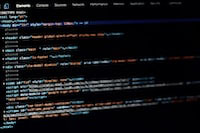 Java
Java javaTutorial
javaTutorial Analysis of FAQs about Java Lambda Expressions: Clearing the Barriers of Functional Programming
Analysis of FAQs about Java Lambda Expressions: Clearing the Barriers of Functional Programming
Java Lambda expressions play an important role in functional programming, but they often confuse developers. PHP editor Banana analyzes common problems in Java Lambda expressions to help you clear the obstacles of functional programming. From the basic syntax of Lambda expressions to solutions to common problems, you can easily understand and apply Lambda expressions and improve your Java programming skills.
Java Lambda expressions allow you to pass anonymous functions as parameters. This means you can write a function and pass it as an argument to another function. Lambda expressions were introduced in Java 8 and provide Java developers with a simpler and more powerful way to write code.
2. How to write Lambda expressionThe basic format of Lambda expression is:
(参数列表) -> 表达式
For example, the following Lambda expression adds two numbers:
(a, b) -> a + b
This Lambda expression can be passed to another function as a parameter, for example:
int sum = calculateSum((a, b) -> a + b, 1, 2);
In this example, the
calculateSum() function accepts a Lambda expression as a parameter and uses it to calculate the sum of two numbers.
When using Lambda expressions, you may encounter some common problems. Some of the questions include:
- Local variables cannot be accessed:
- Lambda expressions cannot access local variables unless they are final. This means that you cannot modify the value of a local variable in a lambda expression. Cannot reuse Lambda expressions:
- Lambda expressions are not reusable. This means that you cannot pass the same Lambda expression to multiple functions. Lambda expressions may cause memory leaks:
- If the Lambda expression references an external object, then this object may continue to exist after the Lambda expression is destroyed. This may cause memory leaks.
In order to solve several common problems with Lambda expressions, you can use the following techniques:
- Use final variables:
- If you need to use local variables in a Lambda expression, then you should declare them as final variables. This ensures that lambda expressions cannot modify the values of these variables. Create new Lambda expressions:
- If you need to pass a Lambda expression to multiple functions, then you should create a new Lambda expression for each function. This will ensure that each function has its own copy of the Lambda expression, thus avoiding memory leaks. Using a Lambda expression factory:
- You can create a Lambda expression factory to create Lambda expressions. This will allow you to reuse lambda expressions and avoid memory leaks.
Lambda expressions are an important new feature introduced in Java 8. It allows you to write cleaner and more powerful code. However, you may encounter some common problems when using lambda expressions. This article analyzes these common problems and provides corresponding solutions. Hopefully these solutions will help you overcome these issues and get the most out of lambda expressions.
>Soft Exam Advanced Examination Preparation Skills/Past Exam Questions/Preparation Essence Materials" target="_blank">Click to download for free>>Soft Exam Advanced Exam Preparation Skills/Past Exam Questions/Exam Preparation Essence Materials
The above is the detailed content of Analysis of FAQs about Java Lambda Expressions: Clearing the Barriers of Functional Programming. For more information, please follow other related articles on the PHP Chinese website!
 掌握Go语言的函数式编程和Lambda表达式Nov 30, 2023 am 10:46 AM
掌握Go语言的函数式编程和Lambda表达式Nov 30, 2023 am 10:46 AM在当代的编程世界中,函数式编程(FunctionalProgramming,简称FP)已经逐渐成为一种流行的编程范式。它强调以函数为基本构建块来构建程序,将计算过程看作是函数之间的不断传递和转换。近年来,Go语言(又称为Golang)因其简洁、高效、并发安全等特点,逐渐被广泛应用于各个领域。虽然Go语言本身并不是一门纯粹的函数式编程语言,但它提供了足够的功
 C++中的函数式编程技巧Aug 22, 2023 am 10:36 AM
C++中的函数式编程技巧Aug 22, 2023 am 10:36 AMC++语言中有许多优秀的编程技巧,其中函数式编程是一种非常实用的技术。函数式编程强调函数的重用性和灵活性,可以使代码更加清晰和可维护。在本文中,我们将介绍C++中的函数式编程技巧。一、函数对象函数对象是一个可调用的对象,它可以被视为一个函数。C++中的函数对象可以是类的对象或者是函数指针。函数对象可以用于STL算法中,也可以作为其他函数的参数。下面是一个简单
 Vue3中的curried函数详解:更好的函数式编程方式的应用Jun 18, 2023 am 10:31 AM
Vue3中的curried函数详解:更好的函数式编程方式的应用Jun 18, 2023 am 10:31 AMVue3中的curried函数详解:更好的函数式编程方式的应用函数式编程一直是编程世界中备受瞩目的一种编程范式,它采用的是一种抽象的、数学式的方式进行编程,关注的是函数执行过程中输入输出的映射关系,而不是像传统的面向对象编程那样关注对象的状态和行为。在Vue3的新特性中,curried函数的应用为函数式编程提供了更好的支持,让开发者可以更加便捷地实践这种编程
 Golang函数的函数式编程和模块化编程的对比分析May 16, 2023 am 08:14 AM
Golang函数的函数式编程和模块化编程的对比分析May 16, 2023 am 08:14 AM随着Golang在近年来的发展,它已经成为了逐渐被大众所认可的编程语言之一。其中,Golang在函数式编程和模块化编程方面也有着它强大的优势。在本文中,我们将深入分析Golang函数式编程和模块化编程的优劣与应用场景。Golang函数式编程函数式编程是一种比较新近的编程范式,它主要强调函数是编程语言的一等公民,可以像其他值一样被传递和操作。函数式编程的一个显
 Python Lambda表达式:缩写,简洁,强大Feb 19, 2024 pm 08:10 PM
Python Lambda表达式:缩写,简洁,强大Feb 19, 2024 pm 08:10 PMpythonLambda表达式是一个强大且灵活的工具,可用于创建简洁、可读且易于使用的代码。它们非常适合快速创建匿名函数,这些函数可以作为参数传递给其他函数或存储在变量中。Lambda表达式的基本语法如下:lambdaarguments:expression例如,以下Lambda表达式将两个数字相加:lambdax,y:x+y这个Lambda表达式可以传递给另一个函数作为参数,如下所示:defsum(x,y):returnx+yresult=sum(lambdax,y:x+y,1,2)在这个例子
 Python Lambda表达式:揭秘匿名函数的强大奥秘Feb 24, 2024 am 09:01 AM
Python Lambda表达式:揭秘匿名函数的强大奥秘Feb 24, 2024 am 09:01 AMpython中的Lambda表达式是匿名函数的另一种语法形式。它是一个小型匿名函数,可以在程序中任何地方定义。Lambda表达式由一个参数列表和一个表达式组成,表达式可以是任何有效的Python表达式。Lambda表达式的语法如下:lambdaargument_list:expression例如,下面的Lambda表达式返回两个数字的和:lambdax,y:x+y这个Lambda表达式可以传递给其他函数,例如map()函数:numbers=[1,2,3,4,5]result=map(lambda
 C++中的函数式编程面试常见问题Aug 22, 2023 pm 05:28 PM
C++中的函数式编程面试常见问题Aug 22, 2023 pm 05:28 PM随着C++在计算机领域中的广泛应用和对编程范式的不断探索,函数式编程也成为了一个备受瞩目的话题。在C++中,函数式编程有许多特殊的概念和语法,因此在面试中也经常会涉及到相关问题。本文就C++中的函数式编程面试常见问题进行了总结和解答。一、函数式编程的优缺点面试官可能会问到你对函数式编程的优缺点的理解。函数式编程具有以下优点:可读性强。函数式编程只关注函数的输
 Go语言中的函数式编程中的纯函数Jun 01, 2023 pm 05:01 PM
Go语言中的函数式编程中的纯函数Jun 01, 2023 pm 05:01 PM在现代编程语言中,函数式编程(FunctionalProgramming)日益受到重视。引入函数式编程思想可以提高代码的简洁性、可读性和可维护性。而在Go语言中,函数式编程也同样得到了广泛的应用。其中,纯函数是函数式编程中的重要概念之一。纯函数(PureFunction)是指能够根据输入参数得到唯一输出结果的函数。它不改变任何外部状态,也不会影响到程序的


Hot AI Tools

Undresser.AI Undress
AI-powered app for creating realistic nude photos

AI Clothes Remover
Online AI tool for removing clothes from photos.

Undress AI Tool
Undress images for free

Clothoff.io
AI clothes remover

AI Hentai Generator
Generate AI Hentai for free.

Hot Article

Hot Tools

ZendStudio 13.5.1 Mac
Powerful PHP integrated development environment

mPDF
mPDF is a PHP library that can generate PDF files from UTF-8 encoded HTML. The original author, Ian Back, wrote mPDF to output PDF files "on the fly" from his website and handle different languages. It is slower than original scripts like HTML2FPDF and produces larger files when using Unicode fonts, but supports CSS styles etc. and has a lot of enhancements. Supports almost all languages, including RTL (Arabic and Hebrew) and CJK (Chinese, Japanese and Korean). Supports nested block-level elements (such as P, DIV),

SecLists
SecLists is the ultimate security tester's companion. It is a collection of various types of lists that are frequently used during security assessments, all in one place. SecLists helps make security testing more efficient and productive by conveniently providing all the lists a security tester might need. List types include usernames, passwords, URLs, fuzzing payloads, sensitive data patterns, web shells, and more. The tester can simply pull this repository onto a new test machine and he will have access to every type of list he needs.

WebStorm Mac version
Useful JavaScript development tools

DVWA
Damn Vulnerable Web App (DVWA) is a PHP/MySQL web application that is very vulnerable. Its main goals are to be an aid for security professionals to test their skills and tools in a legal environment, to help web developers better understand the process of securing web applications, and to help teachers/students teach/learn in a classroom environment Web application security. The goal of DVWA is to practice some of the most common web vulnerabilities through a simple and straightforward interface, with varying degrees of difficulty. Please note that this software





